“A space, a platform, a movement”
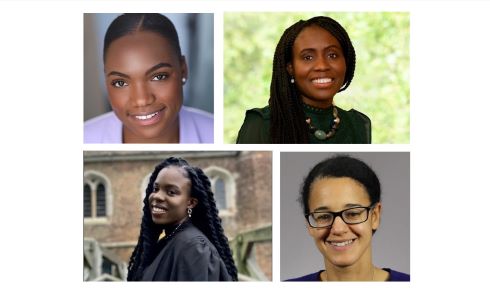
Clockwise from top left: Dr Kayisha Payne, Laura Eghobamien, Professor Nicola Patron, and Tomi Akingbade
The Biologist speaks to the founders of four networks for Black scientists about how to support and grow the Black STEM workforce
In the last five years, a range of new organisations and networks have emerged in many areas of STEM to celebrate and support Black scientists. These range from informal online groups to subject-specific networks and broader, STEM-wide organisations.
As part of The Biologist’s coverage of Black History Month in 2024, we have convened the founders of four of these networks to talk about their work. All reach slightly different audiences, and have slightly different programmes of activity, but share similar aims: to build visible communities of Black scientists, and platforms for their experiences, and to lead action to ensure the next generation don’t face the same challenges they have.
Tomi Akingbade (TA) is currently doing a PhD in neuroinflammation and neurodegeneration at Cambridge and is the founder of the Black Women in Science Network.
Dr Kayisha Payne (KP) is a chemical engineer, currently working for a management consulting firm, and is founder of BBSTEM (Black British Professionals in STEM).
Laura Eghobamien (LE) is an assay development scientist and founder of the Black Medical Scientific Network.
Could we start by hearing about where you were in your careers, or what you were experiencing, when you decided to found the organisations you set up?
NP: Last year was our official launch. Myself and Stephen Spoel, a professor at the University of Edinburgh, and Yoselin Benitez-Alfonso, a professor at the University of Leeds, had been talking about the idea over the previous 12 months. We had been mentoring Black students in the US and we were starting to hear stories about how much mentorship could help, and how important it was to be visible and provide role models.
We looked to each other as pretty much only a handful of Black people in leadership positions in plant science in the UK, with not a fantastic pipeline of students coming through either. All of us had experiences as early career researchers of being the only Black person in our department – or at a conference; all of us had experienced racism of different magnitudes at times in our careers. But I think we had been more affected by the fact that there's really nobody to talk about it with. So we wanted to create a network – for ourselves, but more importantly, to support early career researchers. To give them that support network, some role models, some mentorship, and to build a community. Also to raise awareness of the incredibly low representation in plant sciences.
TA: I started the network back when I was an undergrad student. My experience of science as a Black woman up until that point had been that I just wasn't encouraged to pursue it. I did an undergraduate degree in neuroscience, and there were comments about why I was doing this course, whether I should be doing it; my potential within the field.
I'd always assumed that post-education, it would get better, although I don't know why. I went on to do a research placement and really struggled; there was overt racism, and I didn’t feel like there was a space to exist there, even at early stage.
By chance, I met another Black woman who didn’t work in my building – I was the only Black woman in my building – and we started talking. She was a scientist and her experiences echoed mine. Then I met another woman who’d experienced the same. We went to some ‘women in science’ events, but they weren’t talking about the intersection of race and gender. So we realised that there was a need for it.
I started an online page, initially almost selfishly to see if I could survive in science. Like, what should I be aware of? How should I navigate this space? Before long we began hearing from people across the country who’d had this experience as well.
We've grown since then, and the organisation tackles the three things that I felt needed to change at the time. Our motto is “A space, a platform, a movement”. I needed a space to just exist and say “I can do science”. And I felt very silenced in a lot of my experiences, so we’re a platform for the experiences and the topics that are important to Black women. And we’re a movement, because I don't want this to be the same story for the next 24 years – so legislative action is something we try and do as well.
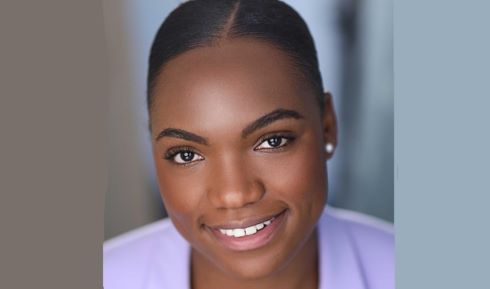 Dr Kayisha Payne
Dr Kayisha Payne
KP: I came up with the idea when I was doing my master's at Imperial. At that point, I was trying to figure out what I wanted to do next, and focusing on how to get a job in the industry. When I was going to careers fairs there was an organisation called SEO London and they were supporting ethnic minorities to get into employment. ‘Ethnic minority’ isn't really a term I would describe myself as, and they also didn't have any links into the engineering or science world. I felt like there was a big gap there.
My mum put me in touch with one of her friend's sons, and I was very inspired by his journey – he was a Black Caribbean guy in his mid-30s who had done really well in chemical engineering. He offered his support and told me his door was always open.
I realised that if my mum hadn't happened to have a conversation with her school friend, this important connection would never have happened. So I wanted to create a platform where young Black people could meet people and see themselves in roles that they wanted to fulfil.
I was very conscious about it being Black British people. Often when people talk about Black scientists, the people that we hear about are African American scientists and inventors; obviously their contribution is great, but the African American story is very different to the Black British story. I was very conscious on having that local lens, where people could feel it was a person from a similar environment; that there was some common ground there.
Our focus is important because among the ethnic minorities, success rates and how we're perceived in a society are very different.
I wanted to create a network initially, but then I wanted to go a step further, to show people how to actually get there. So a lot of the programmes that we focus on at BBSTEM look at how we can take young people from one phase to the next.
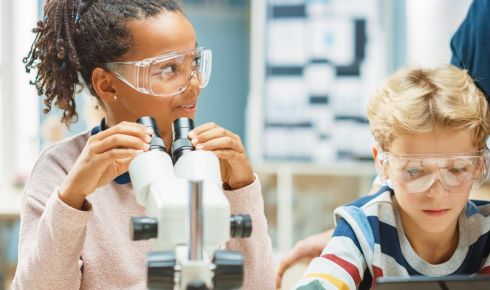
LE: Black Medical and Scientific Network was set up because, like others have mentioned, there was such a lack of representation and experiences in this area. After almost 20 years in life science research, I’ve not really seen much in terms of where underrepresented professionals can get to.
As a way of trying to bridge that gap, we go into schools, and hopefully in my lifetime, we’ll see a change with the next generation coming through.
I've got two teenagers who saw some of the things I went through, and it really put them off wanting to have a career in science. That really breaks my heart. I know their potential, and I didn't want them having an experience that would torment them for the rest of their lives.
Tell me about some of the work that your organisations do, and the impact our networks are having.
NP: At Black in Plant Science we set ourselves up to run activities under three streams: connect, cultivate and celebrate. So under ‘connect’, we’re building networks, connecting people together, and particularly recognising the very low numbers of Black scientists in plant science – people will often be the only Black person doing that sort of work in their department.
Under ‘cultivate’, we are consciously trying to cultivate attraction and retention of Black students in our science. In one piece of research we've done, we found that universities with high numbers of Black students are not the same universities that offer plant science programmes, so there are very few Black people getting exposed to it as a possible field of research.
Thinking about how we're going to evolve our next generation of sustainable crop production, we would like to have the richness and diversity of the UK involved in that conversation. So we are developing programmes to be able to bring plant science to universities that don't have a programme but do house populations of diverse students.
We're also offering funded research placements for undergraduates, to increase their exposure to plant sciences, to get them into excellent labs and to give them the research experiences that are now critical for gaining entry into PhD programmes. Plus we're offering mentorship to help people with preparing applications and interviews to increase their success rates for whichever stage of career they’re entering.
Finally, ‘celebrate’ is obviously about celebrating the success of people in our community and shining light on some forgotten plant scientists. In plant science particularly, a lot of plants have been named for discoverers. But obviously they were not primary discoveries – those plants were in common usage by their local populations, and lots of those people were involved in the documentation of the plants. So we’ve also been working to uncover some of those stories and have greater recognition for contributions in plant science that have been overlooked. We want to make sure that their successes are visible.
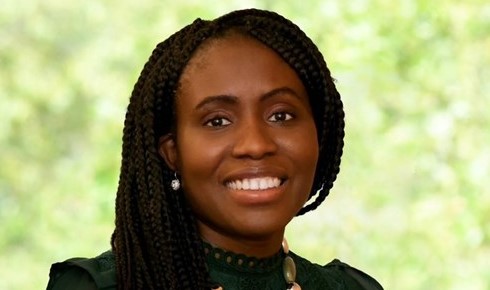 Laura Eghobamien
Laura Eghobamien
LE: We do a lot of work in schools, trying to encourage the next generation, change the whole idea of what a typical scientist looks like, and show them their potential. A lot of them are interested, and we want to change the narrative – that you don’t have to look a particular way to become a scientist. We look for opportunities where we can actively promote the visibility of black scientists, for example at conferences. There is often a lack of black scientist in these types of spaces and we believe that this is key to driving a more equitable science industry. We’re really focusing on the next generation and seeing how we can work together with other organisations as well.
TA: Black Women in Science’s mission is about creating space. We have monthly online safe spaces where Black women can log in and discuss anything they want to discuss. It's closed to anyone else, so it's providing that safe space to tackle and address the feeling of being the only Black person in the room, in the building, or in your physical space.
We also do physical events, and during Black History Month we have an annual event called ‘Celebrating’, which we are using to celebrate people while they're still here. We're trying to guide Black women into a space to celebrate themselves, to network and connect.
Another mission is a platform – things like our podcast and our blog. On our podcast we invite, typically, Black women scientists to speak about the work they do, and discuss topics that are important to them. The ethos of both of those is a ‘for us, by us’ platform where we control the narrative, and we are able to platform our voices to other people.
In terms of legislative action, we were involved in an All Party Parliamentary Group a few years ago, trying to make sure that infrastructures are changing to accommodate long term change.
KP: At BBSTEM, we pocket our activities into access to knowledge and access to opportunities. Access to knowledge comes through our mentoring. We have about 500 professionals in our network who are willing to mentor Black university students. That's been going on for around four years and we’ve done eight cohorts. That's one of our most popular programmes.
Access to opportunities involves partnerships with various organisations, and could be putting on an insight day, an online workshop, or a physical workshop where young people can be introduced to organisations and understand what they can actually do with their degree. We've had partnerships with Microsoft, Google, AstraZeneca, Diamond Light Source, Springer Nature and City. STEM skills are transferable and we want to do this across as many industries as possible.
We also have a jobs and opportunities board. Employers can post details of any roles being advertised on our website, and we promote them to our network via a monthly newsletter.
Anytime we can get involved in legislation and advising on policy changes, we’ll also do that.
We also do some education and workshops around the actual experiences Black people go through. It's all good and well trying to make sure there are opportunities where Black people can enter these spaces, but a lot of the time, once they're there, the environment isn't inclusive. We have a presentation that shows all the biases Black people face from as early as nursery. There is a bias about Black children being more disruptive, which isn't true, through to differences in SAT scores, to further education and UCAS applications, where Black people are more likely to be highlighted for fraud.
We use that to educate organisations around the importance of equity instead of equality. And that, sometimes when Black people present themselves at work, there are a lot more social things they have to overcome, so they may present a little differently; there may need to be a bit more of an empathetic approach.

A concern that I often hear is that these initiatives, as brilliant as they are, are often led by Black scientists volunteering in their own time. Is all of this work voluntary and in your own time? What levels of support are you getting and how does this affect your workload?
NP: We don't get any additional salary to do it. I wouldn't say it's completely within my own time, but it extends my working hours. As a professor at an academic institution, part of my job is leadership and mentorship of early career researchers. And I don't think that anyone would tell me that I couldn't do it in work time. But it obviously means any time that's dedicated to it is taking away from other things.
We have discussed this with research funders, particularly as research funding agencies are keen to expand the diversity on their panels, and that also puts a tremendous burden on us. They don't like it when we decline, but we have to do so to make room for other things.
We do receive funding, for example from the Gatsby Foundation, which funds life sciences research in the UK, and has a specific interest in plant research. We're extremely grateful for that, and we've also received smaller amounts of funding from different organisations that have sponsored, for example, research placements.
Our initial funding allowed us to employ someone to coordinate our network, which means we can run it and it doesn't take up quite so much of our time. But we don't receive any funding from any of the large research funders in the UK.
TA: Black Women in Science was started when I was a student, so I didn't have an infrastructure that allowed salaries. People help out when they can, but there's no core funding. We've had very generous donations from other Black organisations, but for most things we want to do, we have to apply for funding. That restricts us, and limits how much energy we're able to give it.
A more widespread recognition of the value of the work we're doing would help. We’re contributing to a more open, better science. The solutions are pretty simple – if some money was put in the hands of the people already doing the work, it would make a huge change.
It is rewarding when you hear that your spaces changed the trajectory of their career or their life. But it is exhausting.
I think that we're putting the longevity of equity-driven work at risk by not funding it and not supporting it appropriately.
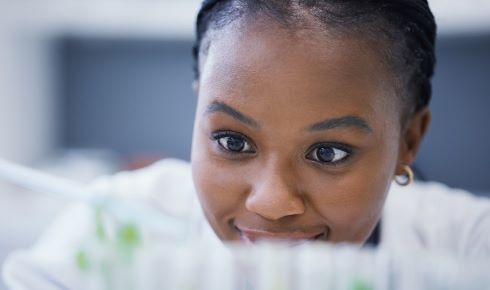
KP: When BBSTEM started we didn't have any funding, it was just me and one of my friends running on fumes and passion. For the first two to three years, we applied to so many different trusts for funding, and were rejected by pretty much every one of them. Because this is a cause I'm really passionate about, I decided to put my own money into it in the beginning. Now, because of some of our consistent programmes, we are self-funded. Our core team are now paid staff, and that really does make a difference in terms of sustainability. We don't have people who are burnt out, and we're able to deliver our programmes effectively.
LE: Just last week someone asked me “Why are you still trying to pursue this? It's taking up so much of your time and it's not paid, so you need to drop it and focus on your career”. But it's really hard, especially when people come up to you and tell you what an impact you're having on them. But the funding is very competitive, you can feel that you're going round and round in circles, and I'm still constantly putting my own funds in. I think removing that layer of competitiveness would be really helpful.
In terms of broader policy agenda, most big research councils and organisations have EDI frameworks and strategies. Do you feel like these are making a difference?
KP: I think every company is at a different stage of their diversity agenda. A lot of companies started with women’s equity years ago and are now going into LGBT, race and neurodiversity. Generally, there will only be a few people in the organisation that are very passionate about diversity and equity. Some organisations have a diversity office and diversity team, and they'll put on things like unconscious bias training, but ultimately, the landscape isn't going to change because a lot of people are ingrained in their biases. It's difficult to change the fabric of an individual if they've grown up in environments where they've had no exposure to Black people or no exposure to a woman in a position of leadership or seniority.
It'll take a whole generational shift to get older white men to look at young Black people and have some sort of empathetic view towards them and their experiences. If they're not empathetic, they're just not empathetic. And I think that's where the challenge arises, despite a lot of the EDI work going on.
NP: My experience with EDI committees and organisations is that they are well intentioned, but don't actually listen. They don't listen to the people that are being disadvantaged and they are unwilling to take on the actions they're advised to by those populations. That’s why we decided to go ahead and do the things that we knew were going to work.
Some people are just completely unaware that there is any bias, sometimes just flat out denying it, denying there is any racism within their organisation.
With cuts in the last few years, I’ve seen EDI budgets get hit so that everything gets combined – from neurodiversity to women and race, and that's a lot of competing things. They’re all important, but I think because we're a smaller part of the population, it's difficult to fight for why this is important.
What are the key points in career pathways where there is drop off, and what challenges prevent Black students from continuing study or even studying science in the first place?
KP: It starts right at the beginning of the pipeline. When we did the All Party Parliamentary Group on diversity in the education landscape, one thing that came up in research was the learning deficit with Black children in secondary schools. Young Black Caribbean boys are something like four times more likely to get excluded than their white counterparts for the same misbehaviours. And when you're doing science, if you miss one lesson, that could potentially mean failing a whole module. That’s where you get a learning deficit.
TA: As you move further along, if you do happen to get onto a science course at university, there is the known attainment gap at universities. You're often moving to cities that aren't very diverse, or maybe differently populated to where you've grown up – that was my experience and it was a bit of culture shock. Not knowing people in the industry, not knowing how to navigate the space… I think science has a lot of unwritten rules. It's about getting experience, knowing how to tailor your CV and yourself to a potential role, then getting into postgraduate study that is adequately funded.
LE: For postgraduate progress, one big problem is funding. There is just so much competition. And after that, when you start working, progression in your career as a Black person is difficult compared to a white counterpart. Often, if they make mistakes because they haven't had work experience, it's really magnified, and those mistakes come back to haunt them. It all has a significant impact in terms of progressing.
I believe a lot of EDI programmes are just tick boxes. There are so many policies, and everyone wants to be seen to be doing well in EDI. But we shouldn't be putting people in those roles if they don't have any compassion or experiences they have that are relevant to the policies they’re creating.
Readers of The Biologist include everyone from that next generation of students to senior decision makers within big institutions. What is your message to them? What can they do to make the environment more inclusive for Black people and support the work you're doing?
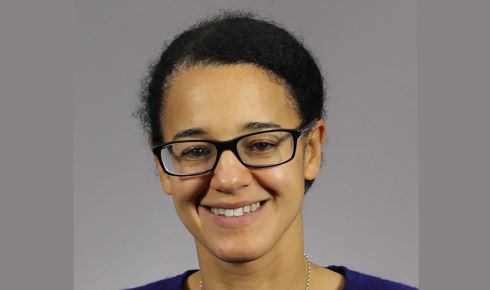 Nicola Patron
Nicola Patron
NP: I think if you're recruiting, you can recruit a Black person. Supporting existing staff is also important. Make sure they're supported to apply for opportunities and encouraged to do so equally. Inequality in mentorship is something I've particularly noticed, and if equality within mentorship programmes was encouraged, I think our workforce would look quite different.
LE: I'd say that if you see a potential opportunity for a Black person to be involved, reach out to them. See how you can help them and support them. All the time, just ask “What can I do to help?”
KP: I would say be intentional – if you're trying to recruit and feel you're not getting enough candidates from Black backgrounds, try different routes. There's a lot of laziness when it comes to EDI, and sometimes people say the talent isn't out there. The talent is out there, you just need to be intentional about finding it. Being a sponsor or a mentor for a Black person within an organisation is important, and if you see gaps or issues, have the confidence to call them out.
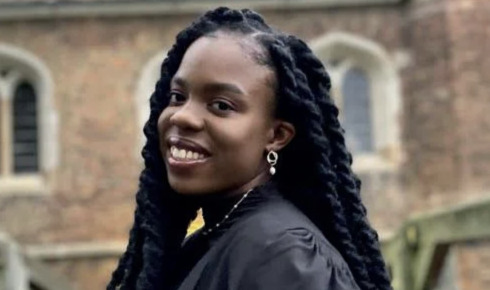 Tomi Akingbade
Tomi Akingbade
TA: One key thing I'd love to see happen is people listening more. A lot of us who do have the lived experiences are speaking and saying what we need – so listen to us, action these things, and give us space.
Professor Nicola Patron is the co-founder of Black in Plant Science.
Tomi Akingbade is the founder of the Black Women in Science Network.
Dr Kayisha Payne is founder of BBSTEM (Black British Professionals in STEM).
Laura Eghobamien is founder of the Black Medical Scientific Network.


